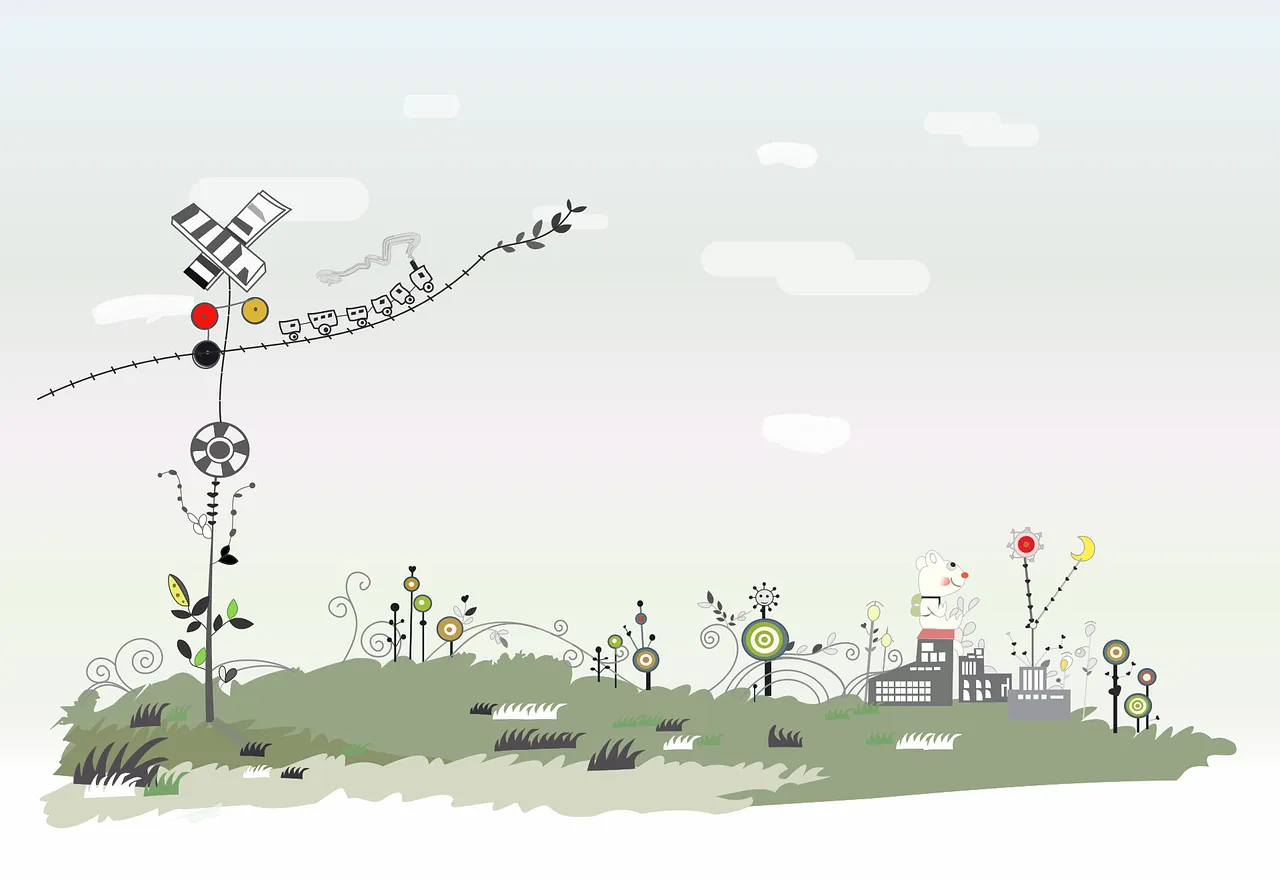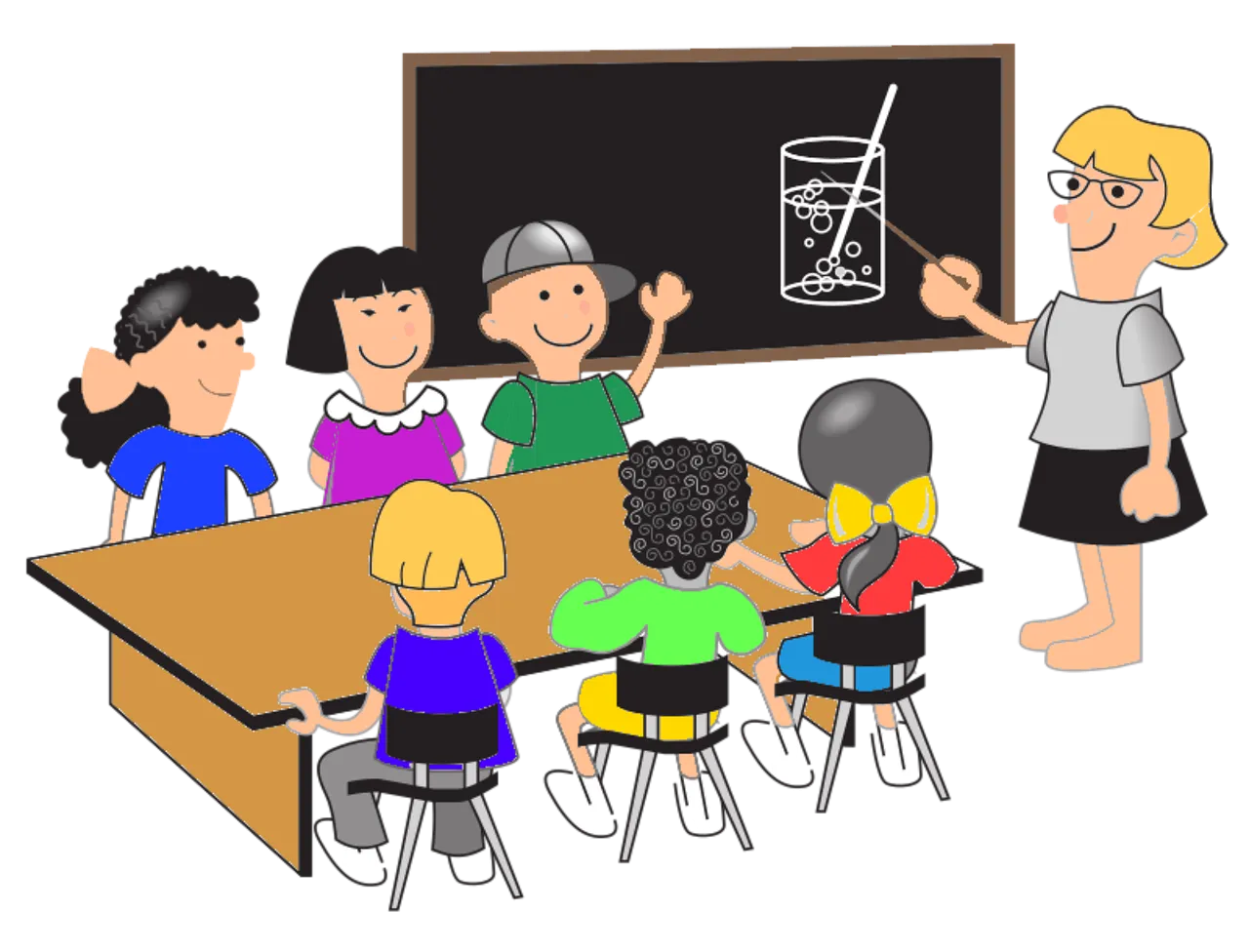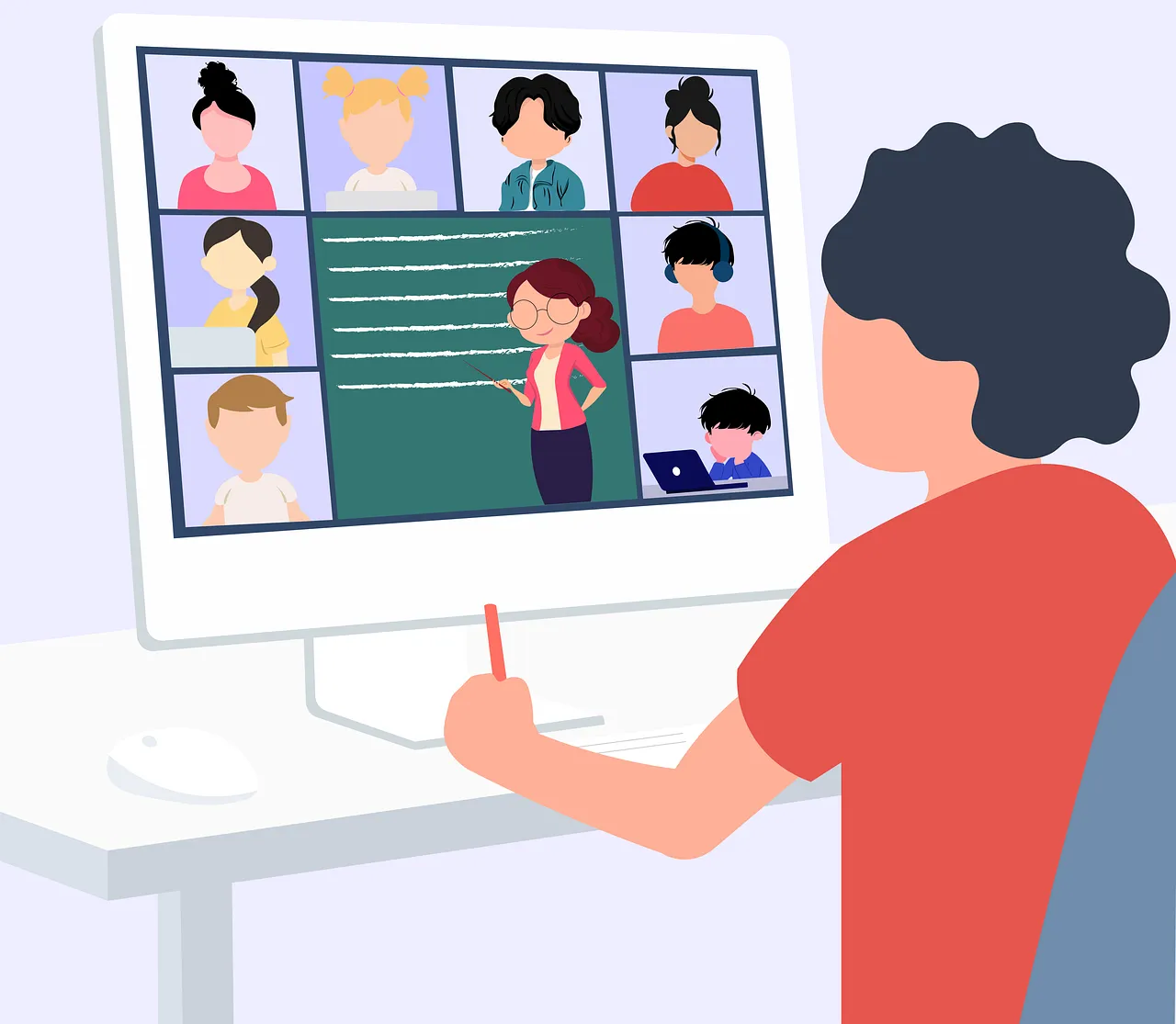Hola, estimados amigos de Hive, especialmente de la comunidad @education. Hoy es domingo, día de descanso y esparcimiento mental. Generalmente se lo dedico a realizar actividades que me ayudan a estar tranquila, como cuidar de las plantas, leer, cocinar, escribir y organizar mentalmente mi semana.
Finalizo mi domingo escribiendo. Esta mañana, muy temprano, leí un artículo del Banco Mundial para América Latina y el Caribe, que me pareció muy interesante porque hablaba sobre la crisis en las competencias básicas de los estudiantes y lo relacionan con el nivel de la calidad educativa.
He estado pensado que me toca en forma directa porque mi trabajo siempre ha sido directamente con la población escolar y con los años he observado que el nivel académico ha caído. ¿Cuál será la dinámica?, comentaré algunos párrafos este artículo: La crisis de la educación la debemos superar entre todos. a la luz de la realidad educativa con la que he interactuado por más de 37 años.
La educación en América Latina y el Caribe tiene una calificación reprobatoria. De cara a la mayor crisis en un siglo, los compromisos de mejora deben hacerse realidad urgentemente para que los niños tengan el futuro que merecen.
En los años que llevo trabajando como docente, he venido observando la caída de la calidad educativa en Venezuela. Voy a aventurarme a decir que las micro realidades forman parte de las macro realidades, y por lo general la describen muy bien. He trabajado fundamentalmente en el estado Sucre, he conocido de cerca la realidad educativa de sus municipios y parroquias. He visto caer la calidad de la educación que se imparte en las aulas de clases e igualmente las competencias de las comunidades educativas.
Esta crisis es el tema central de una cumbre que se celebra esta semana en Santiago de Chile y que reúne a ministros de educación y autoridades y expertos en finanzas. Convocada por la UNESCO y el Ministerio de Educación de Chile, junto con el Banco Mundial y otros socios, la reunión espera identificar políticas exitosas, aumentar las inversiones y garantizar que todos los gobiernos hagan frente a este desafío.
Cuando se habla de políticas educativas se hace referencia a todas las acciones que están relacionadas con las reformas al diseño curricular, entendiéndose por currículum a los planes de estudio, programas y medidas tocantes a la formación del perfil profesional que se desea para hacer frente a las deficiencias en los sectores económicamente débiles.
En Venezuela se han realizado estas reformas, la última produjo el nuevo currículum nacional. La estrategia central ha sido el énfasis en promover la igualdad de oportunidades para el acceso y la permanencia en el sistema educativo, sobre todo de la población más vulnerable, como un intento de vencer las condiciones no equitativas de acceso a la escuela, primeramente. Así mismo, se incluyeron nuevos contenido, como ciudadanía, trabajo y valores.
Aun así, se continúa percibiendo la falta de vinculación de la escuela con su entorno, socavando el sentido de pertenencia que debe tener con sus comunidades inmediatas. Una reforma educativa debe sustentarse en niveles de planificación que cohesionen la diversidad de elementos involucrados de acuerdo a necesidades sentidas ante la realidad económica, política y social del país.
Esta desvinculación, se trató de subsanar con el nuevo Proyecto Educativo, hasta la fecha, sin resultados que realmente validen los esfuerzos realizados a fin de legitimar estrategias que impactaran la construcción de una sociedad renovada, donde la participación real de los ciudadanos trascendiera la escuela y las aulas de clases.
Esta cumbre da seguimiento al evento regional sobre educación que tuvo lugar en Bogotá en marzo de 2023, en el que delegaciones de 19 países refrendaron un compromiso de acción para garantizar que todos los niños accedan a aprendizajes fundamentales que les permita desarrollar todo su potencial.
El compromiso en acción hace referencia al nivel de competencias básicas alcanzada por los estudiantes en lectura, escritura y matemática, como criterio para la transformación de la educación y el análisis de los obstáculos que tienen que enfrentar los estudiantes. Los aprendizajes básicos representan un índice importante de la calidad educativa ya que sobre ellos se cimientan otros aprendizajes más complejos, de allí su importancia.
Pero no sólo eso. También hace referencia a un conjunto de factores que coadyuvan el desarrollo social sostenible, la inclusión, la igualdad, el reconocimiento ciudadano y la convivencia para la paz y el progreso humano. Así mismo, el compromiso con la disminución de los niveles más bajos de aprendizaje.
Venezuela debería formar parte de este compromiso en acción para que los entes corresponsables garanticen la matriculación y prosecución educativa de todos los niños en situación de marginación, ser parte de los programas de nivelación académica. Los recursos deben extenderse a o docentes, con programas de formación permanente, mejorar el sistema de salud, nutrición y tecnología (protección social).
…los alumnos de 15 años de la mayoría de los países de ALC se enfrentan a una profunda crisis de aprendizaje, que afecta sobre todo a los estudiantes de comunidades vulnerables. En promedio, el 75% de los alumnos está por debajo del nivel básico de competencia en matemáticas y el 55% está por debajo en lectura .
Llama la atención que se señale un mayor porcentaje de estudiantes con desnivel en matemáticas, porque en las escuelas generalmente se acentúan las debilidades en lectura y escritura. De hecho, desde el nivel inicial poco se pone énfasis en la conquista de los conceptos lógicos matemáticos y su vinculación con la construcción de conocimientos, cada vez más complejos, que involucran al número.
…los resultados del aprendizaje se están moviendo en la dirección equivocada porque hay un aumento del bajo rendimiento. Esto es particularmente evidente en matemáticas, cuando se compara con la encuesta PISA de 2018.
Si existe un aumente del bajo rendimiento, es lógico pensar que la dirección de los recursos invertidos se han desviados o que esos recursos deben ser seriamente revisados y reorganizados. Actualmente se hace responsable a la pandemia de Covid-19 por los desniveles académicos que alcanzan dimensiones alarmantes.
Sabemos que no todo se debe a las consecuencias del período de la pandemia, pues sabemos, y esto se ha reflejado en informes del mismo Banco Mundial, que el declive de la educación se hizo notorio por lo menos dos años antes de la aparición del Covid-19.
Sin embargo, la buena noticia es que varios países ya están actuando. A partir de la pandemia, algunos cambiaron los programas de enseñanza para hacer hincapié en las competencias básicas en lectura y matemáticas, dirigieron la ayuda adicional a los alumnos de bajo rendimiento y desplegaron más tecnología para ayudar a los estudiantes con dificultades.
Sería muy positivo que Venezuela se sumara a esta iniciativa, este país no está ajeno a su realidad, es evidente que las escuelas no pueden hacerse cargo, hace falta la suma de voluntades de todos los actores: gobernantes, comunidades educativas, fuerzas vivas de la sociedad, tanto públicas como privadas, para hacer un solo frente a la crisis del aprendizaje, de este compromiso en acción.
Bien, ha sido todo por hoy, espero haber ofrecido un tema interesante, que nos coloque en la disyuntiva de analizar nuestra realidad educativa

Ahora voy a traducir al inglés con la ayuda de Google.

Hello, dear friends of Hive, especially from the @education community. Today is Sunday, a day of rest and mental recreation. I generally spend it doing activities that help me stay calm, like taking care of the plants, reading, cooking, writing, and mentally organizing my week.
I end my Sunday writing. This morning, very early, I read an article from the World Bank for Latin America and the Caribbean, which I found very interesting because it talked about the crisis in the basic skills of students and they relate it with the level of educational quality.
I have been thinking that it affects me directly because my work has always been directly with the school population and over the years I have observed that the academic level has fallen. What will be the dynamics? I will comment on a few paragraphs of this article: [We must overcome the education crisis together.](https://blogs.worldbank.org/es/latinamerica/crisis-educacion-america-latina -caribe?cid=ecr_fb_worldbank_es_ext) in light of the educational reality with which I have interacted for more than 37 years.
Education in Latin America and the Caribbean has a failing grade. In the face of the biggest crisis in a century, commitments to improvement must urgently be realized so that children have the future they deserve.
In the years that I have been working as a teacher, I have been observing the decline in educational quality in Venezuela. I'm going to venture to say that micro realities are part of macro realities, and they usually describe it very well. I have worked mainly in the state of Sucre, I have known closely the educational reality of its municipalities and parishes. I have seen the quality of education provided in classrooms decline, as well as the competencies of educational communities.
This crisis is the central theme of a summit being held this week in Santiago, Chile, which brings together education ministers and financial authorities and experts. Convened by UNESCO and the Chilean Ministry of Education, together with the World Bank and other partners, the meeting hopes to identify successful policies, increase investments and ensure that all governments rise to this challenge.
When talking about educational policies, reference is made to all actions that are related to reforms to curricular design, meaning curriculum to be the study plans, programs and measures related to the formation of the professional profile that is desired to face the deficiencies in economically weak sectors.
These reforms have been carried out in Venezuela, the last one produced the new national curriculum. The central strategy has been the emphasis on promoting equal opportunities for access and permanence in the educational system, especially for the most vulnerable population, as an attempt to overcome the inequitable conditions of access to school, first. Likewise, new content was included, such as citizenship, work and values.
Even so, the lack of connection between the school and its environment continues to be perceived, undermining the sense of belonging that it should have with its immediate communities. An educational reform must be supported by levels of planning that unite the diversity of elements involved according to needs felt in the face of the economic, political and social reality of the country.
An attempt was made to remedy this disengagement with the new Educational Project, to date, without results that really validate the efforts made in order to legitimize strategies that would impact the construction of a renewed society, where the real participation of citizens transcended the school and the classrooms.
This summit follows up on the regional event on education that took place in Bogotá in March 2023, in which delegations from 19 countries endorsed a commitment to action to ensure that all children have access to fundamental learning that allows them to develop their full potential.
Commitment in action refers to the level of basic competencies achieved by students in reading, writing and mathematics, as a criterion for the transformation of education and the analysis of the obstacles that students have to face. Basic learning represents an important index of educational quality since other more complex learning is based on them, hence its importance.
But not only that. It also refers to a set of factors that contribute to sustainable social development, inclusion, equality, citizen recognition and coexistence for peace and human progress. Likewise, the commitment to the reduction of the lowest levels of learning.
Venezuela should be part of this commitment in action so that the co-responsible entities guarantee the enrollment and educational continuation of all marginalized children, and be part of the academic leveling programs. Resources must be extended to teachers, with ongoing training programs, improve the health, nutrition and technology system (social protection).
…15-year-old students in most LAC countries face a profound learning crisis, which especially affects students from vulnerable communities. On average, 75% of students are below basic proficiency in mathematics and 55% are below in reading.
It is striking that a higher percentage of students with a gap in mathematics is reported, because in schools weaknesses in reading and writing are generally accentuated. In fact, from the initial level little emphasis is placed on the conquest of logical mathematical concepts and their connection with the construction of increasingly complex knowledge that involves number.
…learning outcomes are moving in the wrong direction because there is an increase in poor performance. This is particularly evident in mathematics, when compared to the 2018 PISA survey.
If there is an increase in poor performance, it is logical to think that the direction of the invested resources has been diverted or that those resources must be seriously reviewed and reorganized. The Covid-19 pandemic is currently held responsible for academic gaps that reach alarming dimensions.
We know that not everything is due to the consequences of the pandemic period, since we know, and this has been reflected in reports from the World Bank itself, that the decline in education became noticeable at least two years before the appearance of Covid. -19.
However, the good news is that several countries are already acting. Beginning with the pandemic, some changed instructional programs to emphasize basic skills in reading and math, targeted extra help at low-performing students, and deployed more technology to help struggling students.
It would be very positive if Venezuela joined this initiative, this country is not oblivious to its reality, it is evident that schools cannot take charge, the combined will of all actors is needed: rulers, educational communities, living forces of the society, both public and private, to confront the crisis of learning, of this commitment in action.
Well, that's all for today, I hope I have offered an interesting topic that places us in the dilemma of analyzing our educational reality








